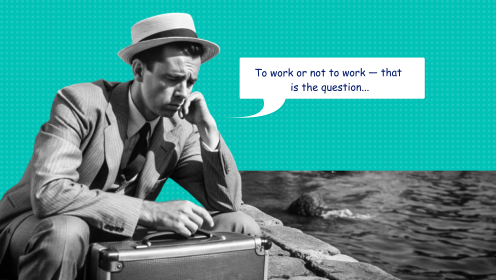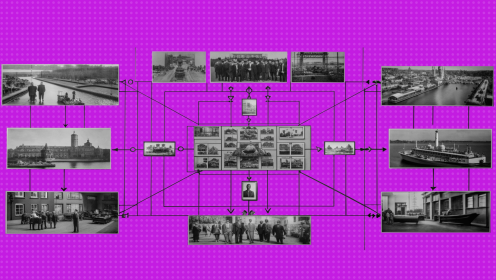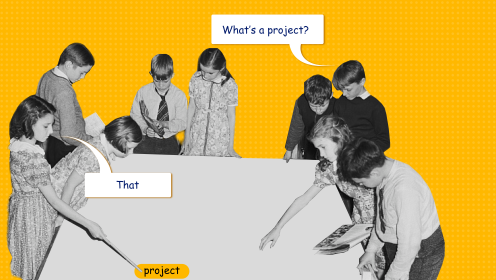So, imagine the situation. The mailbox is bursting at the seams, the counter of new messages in the working messenger has exceeded 1000, the working day will end in a couple of hours, and then the boss comes up and asks if you can make an additional report by the end of the day.
In your head you hear "No, no reports, no!", but you say "Yes, of course."
And if the boss, for his part, does the right thing (gives you room for an answer), then you are making a huge mistake — not saying "no" when, it would seem, it's time for this.
Is the situation familiar? Then let's figure out why we do this, and how to still learn to say "no" so as not to offend others and ourselves.
Why we are afraid to say "no"
There are many situations when saying "no" is the most reasonable thing to do:
- they set a task with unrealistic deadlines;
- they ask you to do something that is beyond your competence;
- they come with a task when you already have too much to do, etc., etc
But, nevertheless, we do not dare to refuse, because we are afraid that others will consider us "difficult", not team players. We don't want to feel guilty for refusing to help someone, we don't want to be disappointed in us. We want to be involved in something, we want to feel connected to other people — this is one of our most fundamental needs. By saying no, we feel that we are putting this connection and involvement at risk, so we prefer to put other people's goals above our own.
Refusal is a sign of self—respect
All this sounds so hopeless that I just want to shrug my shoulders, saying, "well, now I have an explanation why I always agree to help, I will continue in the same spirit." But I advise you to slow down here — saying "no" at work and in life is not only normal, but also very important. After all, saying "yes" to everything is disrespect for oneself and a direct path to overload, inefficient work and other bad consequences.
If you learn to refuse beautifully, you will show your colleagues that you say "no" not because you don't want to help, but because you are overloaded and can't take on more tasks. The ability to say "no" is a sign of respect for yourself and your time, no other way.
How to say "no" beautifully
I have collected some tips that will help you refuse in a good way (the way you say "no" is very important).
Practice
According to the study, it is easier to refuse when you rehearse in advance how you will say "no". Try to refuse someone at least a couple of times a day. Then the collector from the food delivery will offer to take a kilogram of turkey more; then the Internet provider will offer to switch to a more expensive tariff; then the bank, which you do not use, will offer to take a loan for a million rubles - in general, there will be reasons.
Such regular workouts will help you become more confident and when you are asked to do something and you don't have time for it, you will know how to say "no" without hurting other people's feelings.
Set boundaries
You should set boundaries in advance so that your colleagues understand what you can do and what you can't do. For example, already at the time of employment, you can discuss with the employer that you are not ready to work on weekends.
Firstly, it will save you from unnecessary situations in which you will be forced to say "no".
Secondly, if you yourself understand your boundaries well, it will be easier to refuse.
Specify the introductory information
When someone asks you to do something, don't rush to refuse. First, specify the details: the timing, importance and essence of the task. Then, based on this additional context, decide whether you can take up the task.
The evaluation maneuver will show the person who came to you with the task that you really want to help, and not just immediately refuse.
In addition, the pause that you will take while clarifying the details will help you calm down, give you confidence and help you better assess the situation.
Know your priorities
In order, if necessary, to reasonably refuse or, conversely, take on an additional task, you need to clearly understand what is your priority. Tell your colleagues or supervisor about your priorities when they come to you with some business. A rational approach will show them that you are not lazy to help, but you want to bring the greatest result to the company.
Use the built-in priority system in WEEEK to easily visualize your workload and determine whether you can accept new tasks.
Block the time in the calendar
Time boxing is a great way to say "no, I'm busy" without saying it out loud and thus avoiding conflict. Reserve for yourself a certain time in the calendar (colleagues should have access to it), at which you do not want to be disturbed.
Paraphrase the word "no"
Anyway, the word "no" sounds pretty harsh. If you are very uncomfortable and you don't want to offend a person inadvertently, try to rephrase: "not now", "I really can't, because ...", etc. A detailed explanation of why you can't do something will help another person to accept rejection more easily.
Show compassion
Even if you say "no" to a person, you can do a lot to stay on good terms with them. For example, try to always speak from a position of compassion and show people that you can hear them. The phrase "I understand ..." is capable of a lot.
Don't forget that empathy is an important component of human relations, including working relationships.
Suggest an alternative
This is the best way to say no politely. Even if you formally refuse to do something, you will still prove yourself as a team player if you offer an alternative option. For example, you can't take on the whole task, but you can do part of it or help later. It seems that you will refuse, but it seems that you will not.
Stand firm on your own
If a colleague continues to try to convince you to say "yes" after a refusal, stand your ground. Remember why you refused. If nothing has changed, then you have no reason to agree.
As a last resort, you can follow the previous advice and offer some alternative solution to the situation.
Get ready for possible negative feedback
But even if you make every effort and refuse as politely as possible, there will be people who will still take your "no" with hostility. Be mentally prepared for this and know that it has nothing to do with you personally. You can influence another person's reaction, but you can't control it. You are not to blame for other people's actions — everyone is responsible only for their own.
How not to do
And now a few words about what I strongly advise you not to do when you say "no" to someone.
Don't overdo it with apologies
Oh, this is my scourge. I can apologize endlessly. That's also why it's so hard for me to refuse — you can convince me in two counts.
It is better to avoid apologies altogether and reformulate them in gratitude. For example, say "Thank you for your patience" instead of "Sorry for waiting".
Don't go into details
Yes, it is necessary to explain the reason for the refusal — if it is reasoned, it will smooth out the negative. But there is no need to go into details. "I'm sorry, but they threw tasks over the roof here, and I also remembered that my dinner is not ready and the dog needs to be washed, and in general I'm very tired, because the neighbors are doing repairs all day long..." In general, you understand — no one needs the details.
Don't give false hope
If you decide that you will refuse, say "no". Do not shirk, do not promise that you will "try to help" if you are not one hundred percent sure of it. It will be fair both to yourself and to the other side — if your opponent clearly understands that you can't help, he will have time to find someone else.
Don't worry if an immediate response is required from you
There are almost no situations that can't wait 30 minutes. If the situation is complicated, you simply can't give an answer right away — accept it. Taking the time to figure out, explore alternatives, check the calendar is normal. So feel free to say in such a situation: "Give me a little time to think, and I will answer."
The ability to say "no" is an important skill that can and should be learned. No matter how much you want to help everyone, you can't do it. You have your limits that you can't step over. The ability to convey them, clearly prioritize, find alternatives, will make you a real team player.
And "no" will never be superfluous.


















